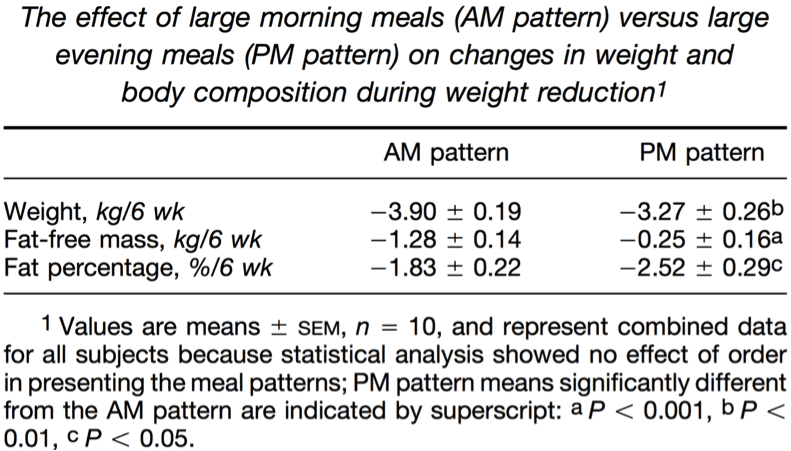Introduction
The idea of eating carbs at night comes primarily from the concept of “carb backloading”. In theory, eating carbs at night should take advantage of the supposed fluctuations in insulin sensitivity (IS) within the muscle and fat tissue throughout the day. It may also be able to maximize glucose that is taken up during exercise. At least, that is the theory.
What does science tell us about eating carbs at night?
Summary
No, total calories determine weight loss or gain, not timing or eating carbs at night. There does not appear to be any magical properties to eating carbs at night compared to in the morning
Discussion
First, let’s address some of the reasons that people might think eating carbs at night does in fact lead to more weight loss. Often, when carbohydrates are eaten late at night, an increase in weight is seen the next morning. This is because of two reasons.
- An increased amount of food in the gut, causing an increase in scale weight. This will go away once the food is digested.
- Carbohydrates cause an increase in water retention (~4 grams of water is held for every gram of carbohydrate). This water retention is temporary, will go away after ~one day, & is not fat.
When we look at true fat loss and body composition changes, sadly we don’t really see this shake out. In one study, people who shifted their carbs and total calories to the morning compared to the evening saw no real difference in weight loss [1]. However, the group that consumed carbs and calories later in the day may have had slightly better body composition at the end of the study.

You can consume carbs at night and still lose weight. Or you can consume carbs in the morning and lose weight. Choose what works best for your life and your schedule.
